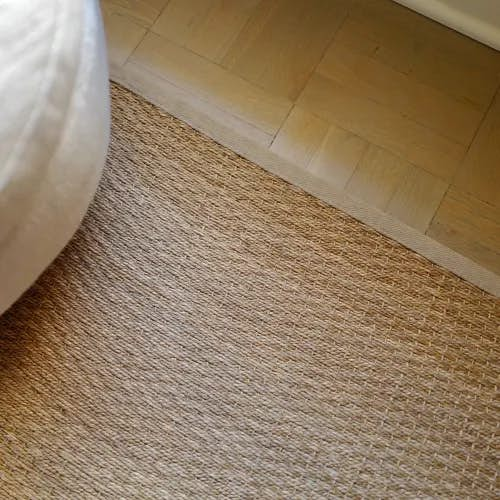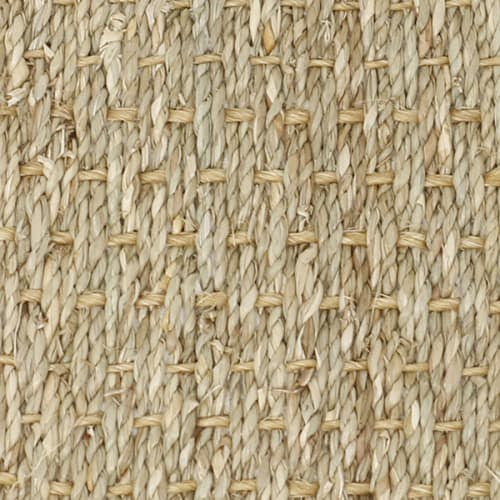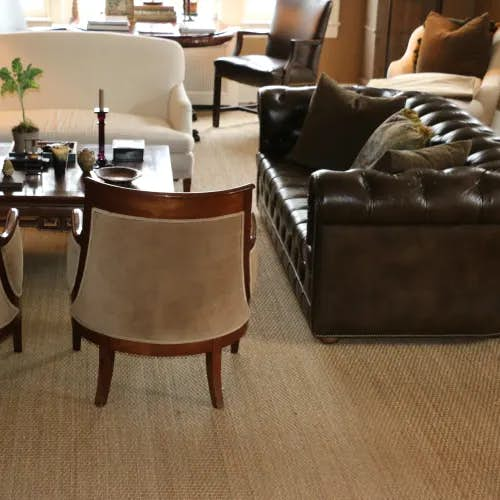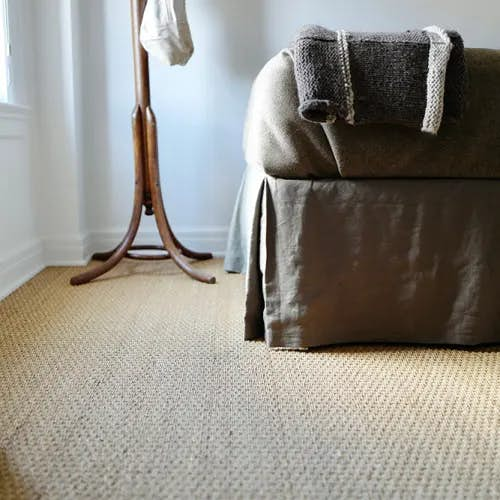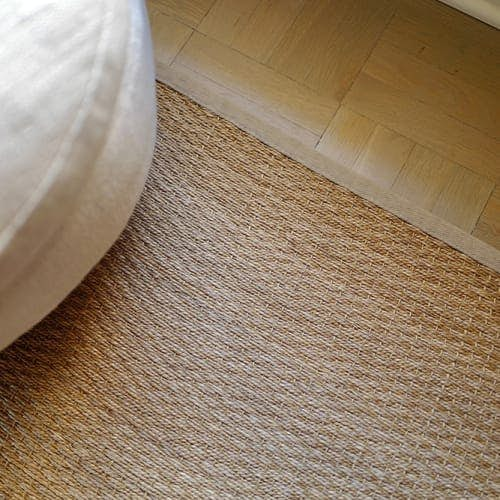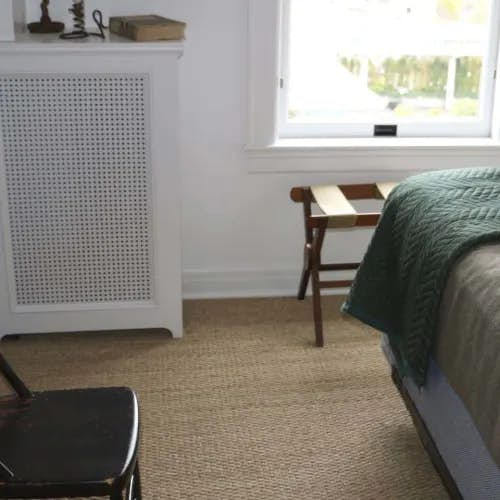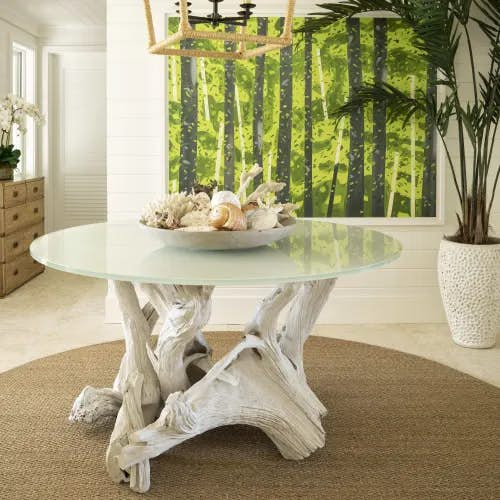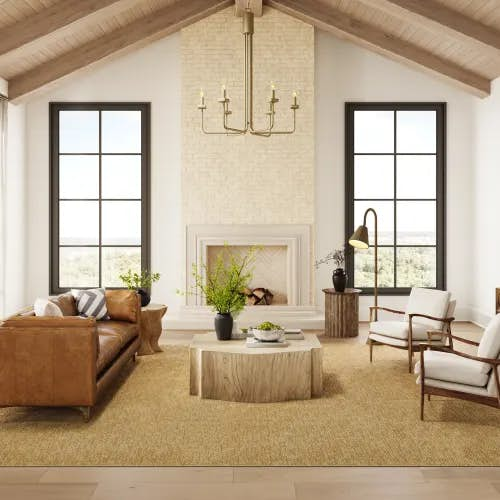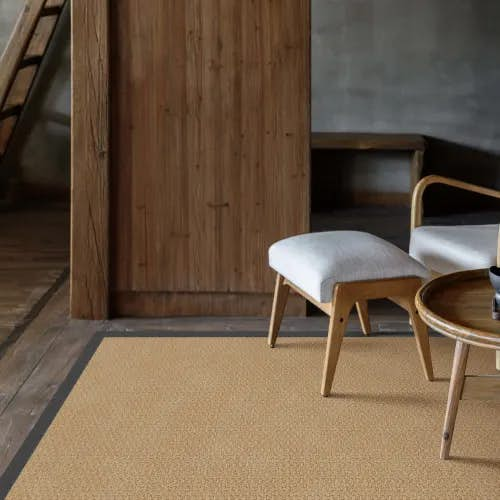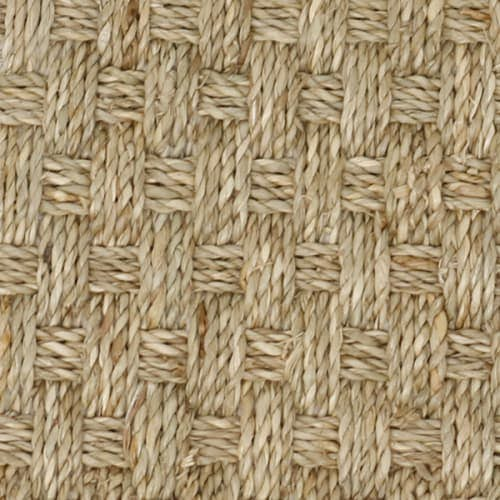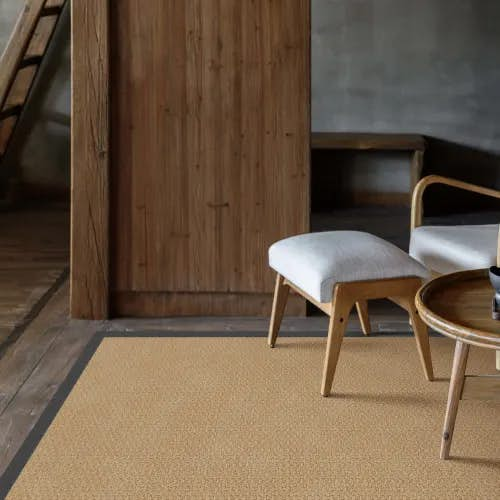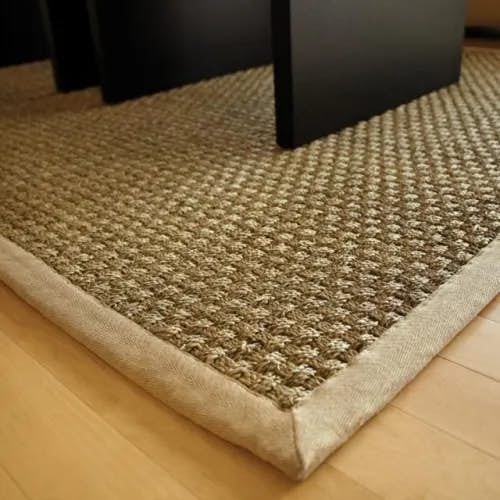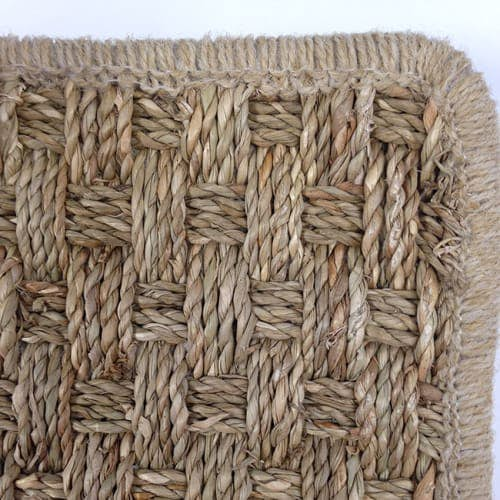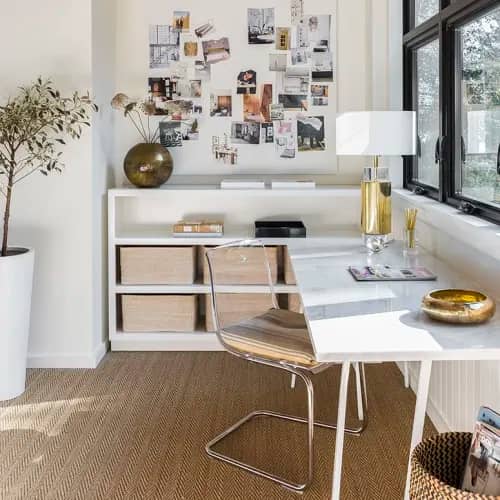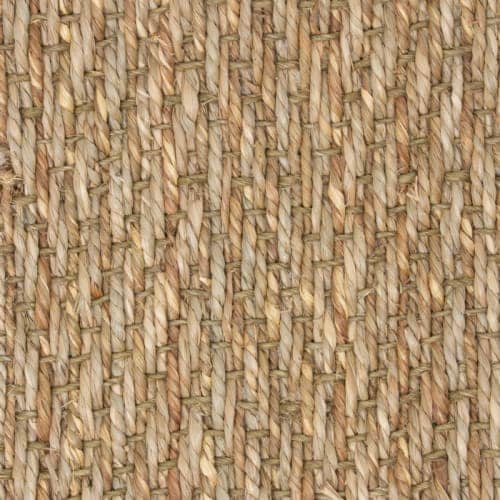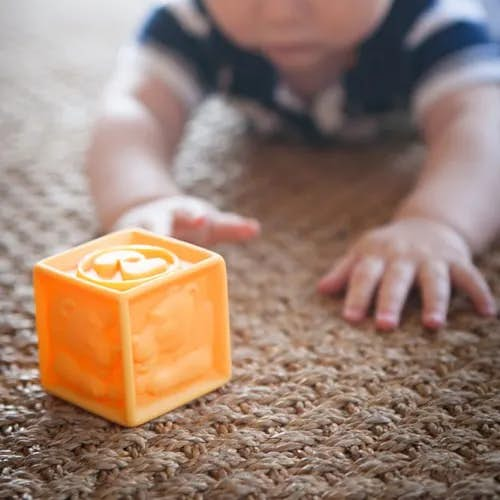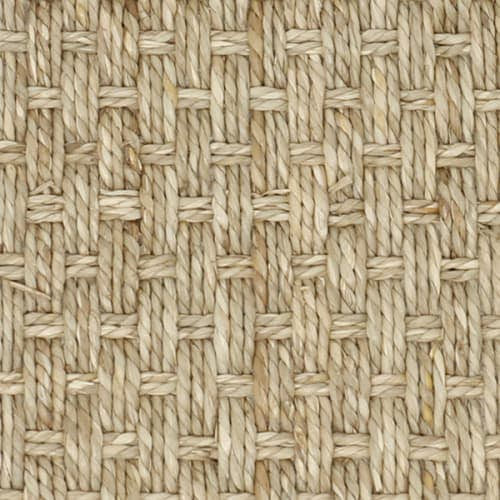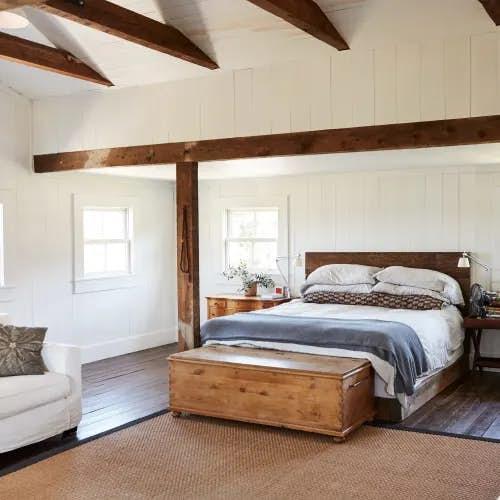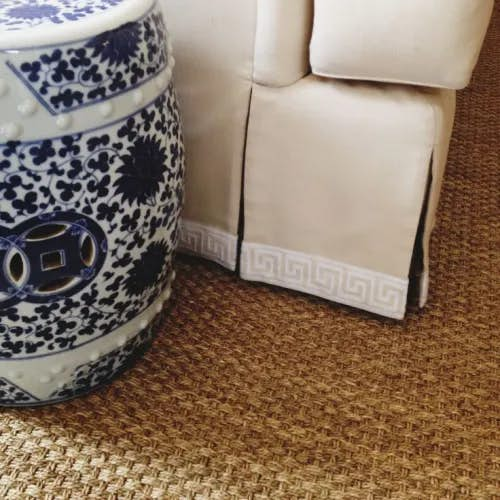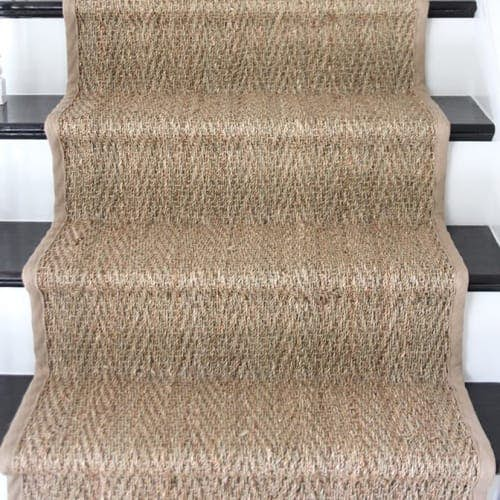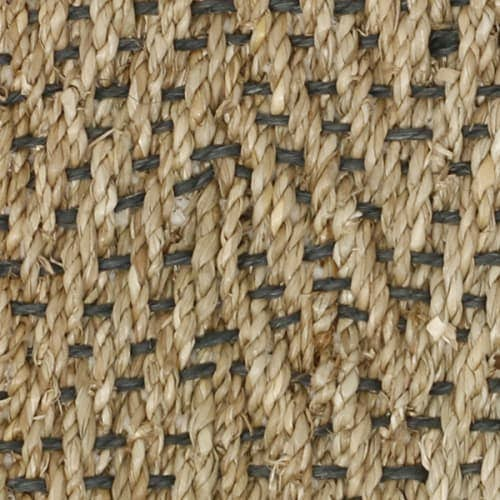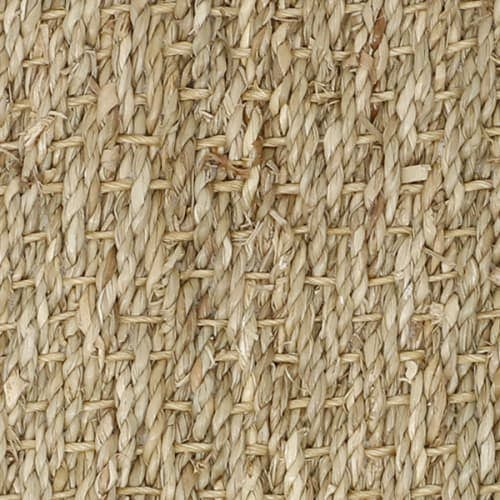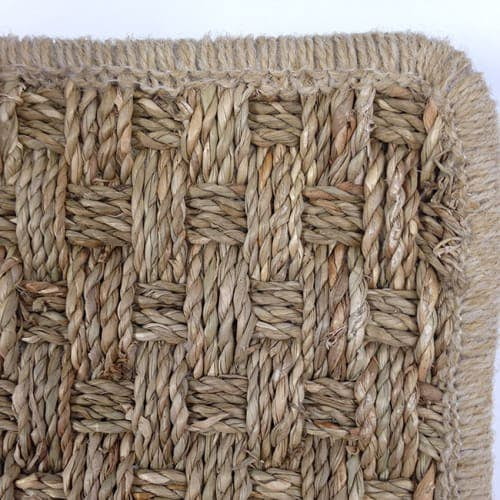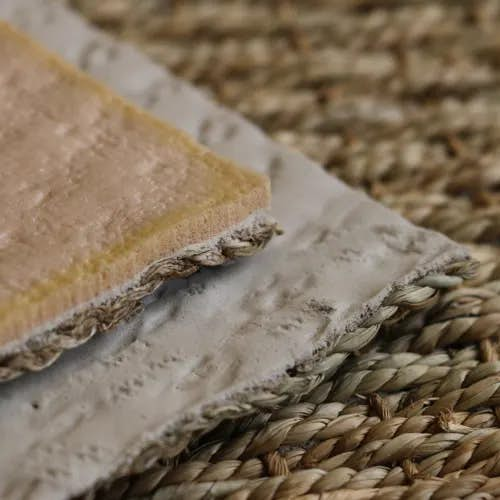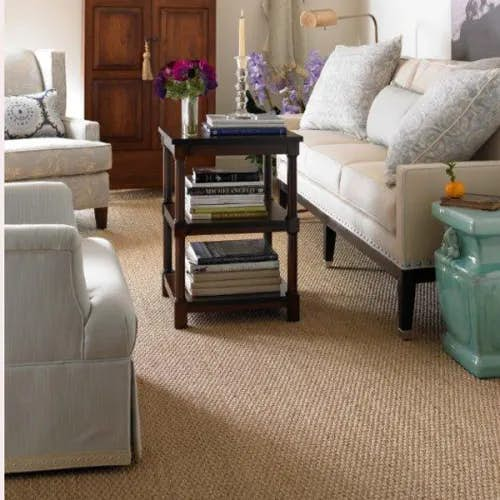SEAGRASS
What is seagrass?
Do I want a seagrass rug or carpet?
Jump below to learn more about seagrass and whether this material is the perfect match for you.
A perennial plant that grows in low-lying, underwater meadows of the Asia-Pacific region, seagrass is often confused with seaweed or grasses. Seagrass is actually a flowering plant with roots, stems, and leaves. The “grass-like” leaves are harvested and woven in a variety of products from baskets to placemats, from rugs to furniture. Being a water plant, its fibers are non-porous and durable, making seagrass an ideal material for rugs and carpets.
Seagrass fibers have a smooth texture, resist stains, and are super tough. Of the natural fiber rugs, a seagrass rug is usually the least expensive. A seagrass rug or carpet can be used in busy places like hallways, entryways, living rooms, or other gathering spaces. Plus, you can create a custom-sized seagrass rug to fit your space, from round rugs to hallway runners.
Seagrass fibers are also static-free and do not attract dirt or dust, making a seagrass rug a great choice for creating a low-allergen environment. Plus, the natural look of a seagrass rug will blend with all styles and enhance your home.
What is the difference between sisal, seagrass and other natural fibers?
For an in-depth discussion on the differences between these natural fibers, head over to our blog post What Is the Difference between Sisal, Seagrass, Coir, Jute and Abaca?
A wonderful attribute of seagrass is its non-porous nature: the seagrass fibers have a waxy coating that repels water and makes spills and/ or pet accidents easy to clean. Of course, as with all accidents, you must act quickly to soak up the liquid or remove the spill. For an added layer of protection on your seagrass rug or carpet, you may choose to apply Sisal-Guard, a spray-on sealant for natural fiber rugs and carpet that will act as a barrier to reduce the risk of staining.
Regular vacuuming will prolong the life of seagrass rugs. We also recommend a walk-off mat upon entry to your home and a no-shoes-in-the-house policy. Seagrass feels soft underfoot, so no need to worry about comfort. All of our weaves come with guidelines for care and maintenance that are accessible under the Care tab on each weave page. For more general care guidelines, please visit our Care Guides page.
Seagrass is a renewable, biodegradable, and non-toxic option for your next rug or carpet. The seagrass plant has an efficient and fast-growing cycle, allowing for multiple harvests a year. No pesticides or chemical fertilizers are used in seagrass production, and most weeding is done by hand rather than through the use of herbicides. You can rest assured with our seagrass rugs that you are making an eco-friendly choice. Learn more about our commitment to sustainability here.
The beauty of a woven rug comes from natural variations, colorations, and patterns that emerge in the rug, adding visual and textural interest to any interior design. If you are looking for pattern, Arrowhead shares earthy hues with a subtle herringbone pattern. Seagrass rugs and wall-to-wall carpet have been a favorite among designers for decades, especially our Calypso, because of their versatility. A neutral palette is a great place to start a design style and layering wool or other fiber rugs on top of seagrass adds another dimension.
Since seagrass leaves are non-porous, they can not be dyed. Therefore, seagrass comes in one shade: natural. Natural for a seagrass rug means a slightly greenish tint that will age and mellow over time into a warm tan or khaki. Direct sunlight over extended periods of time can alter the color of your seagrass rug. Using shades or curtains on your windows or rotating your rug will help even out the natural color changes. If you would like more color and shade options, we carry a wide selection of natural fiber weaves to find your perfect match.
Honestly, there are mixed opinions about using seagrass in damp environments. Some say (like us) that it is likely to mold and mildew but others say that its’ impervious quality makes it fine for damp areas.
For a wall-to-wall installation, a drier, more climate-controlled setting is best. If you wish to have the natural look of seagrass in a bathroom, laundry room, or kitchen, a custom area rug that is routinely “aired-out” and vacuumed should fair fine.
For complete peace of mind, shop our collection of natural-looking synthetic weaves that look lovely, clean easily, and perform well in areas that may get wet.
Backings help stabilize a weave, plus they provide cushioning and sound insulation. We sell seagrass rugs and carpet that have either a natural latex backing or a urethane backing.
The latex backing is natural—an obvious benefit—but has been known to stick to hardwood or other hard surface floors. We recommend that you use a separate rug pad to provide a layer of protection.
Our urethane-backed seagrass rugs are extra durable and have more cushioning.
You may order swatch samples of both seagrasses to help you make a decision by selecting from the weaves above. For example, ordering swatches of both Biscayne and Biscayne Urethane will help you see and feel the difference.
%2Ff_auto%2Fq_auto%2Fw_1276%2Fv1732222733%2FFlooring%2FVendors%2FDMI%2FBeauty_Image%2Fcalypsonatural_seagrass_5_renny_CG_edit_Nov2024_oao8ar.webp&w=3840&q=70)
%2Ff_auto%2Fq_auto%2Fw_1276%2Fv1680194473%2FFlooring%2FVendors%2FDMI%2FBeauty_Image%2Fcalypso_natural_dmi_closeup_textural_wd_wmagpo.webp&w=3840&q=70)

